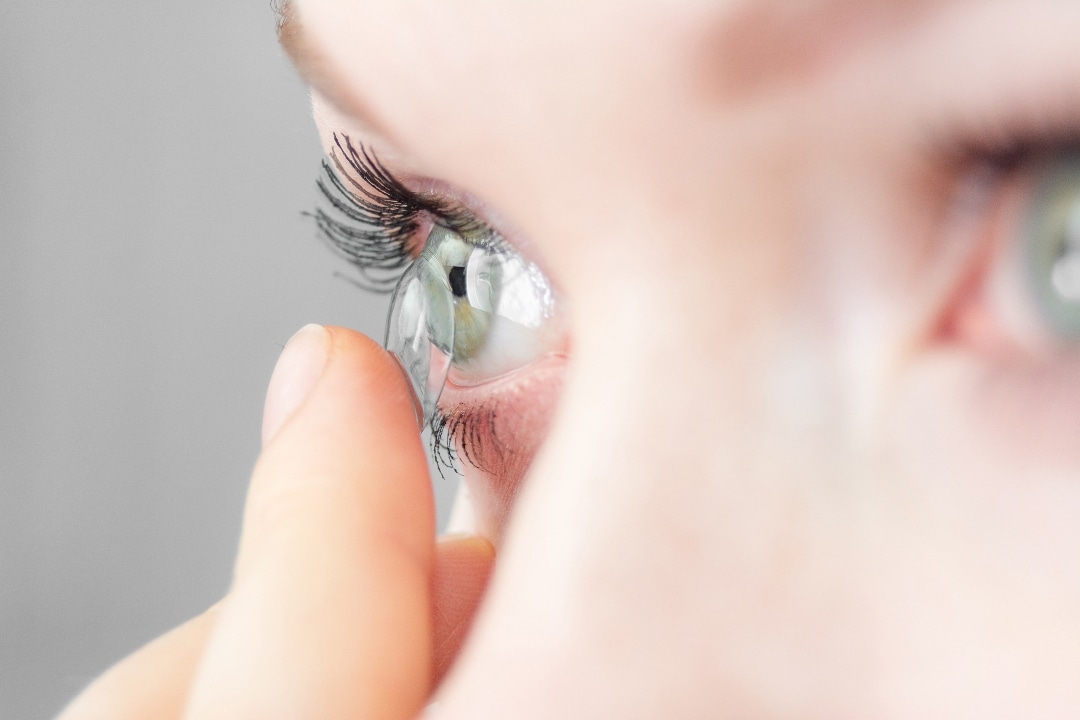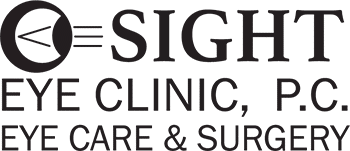Glasses or Contacts: Which Should You Choose?
More than 6 in 10 Americans wear some form of corrective eyewear at least part of the time. And while the majority of them primarily choose to wear glasses, the CDC estimates there are about 45 million Americans who choose to wear contacts—either exclusively or as an alternative to glasses.
So which option should you choose? For the most part, this comes down to personal preference. However, there are certainly pros and cons to each that you should weigh before deciding on one or the other—or deciding that you’d like to use a mix of both.

The Benefits of Going with Eyeglasses
Glasses are the more popular option overall, although the gap is much smaller for people under 30. There are many reasons why this the case. Some of the most significant include:
- Extremely low risk of negative side effects. With glasses, the lenses don’t touch your eyes, and you don’t have to touch them with your fingers to put the glasses on or take them off. They don’t block the flow of oxygen to your eyes, which all contacts do to some extent (even gas-permeable ones). They also require less cleaning and maintenance, and they aren’t going to hurt you if you leave them on too long or accidentally fall asleep wearing them. As a result, your risk of infections, eye irritation, or other physical problems are significantly lower with glasses than with contacts.
- Convenience for day-to-day activity. Wearing glasses is as easy as putting them on in the morning, taking them off at night, and quickly cleaning them every couple of days when they get dirty.
- Generally lower cost over the long term. Assuming you take good care of your glasses and your prescription doesn’t change too rapidly, a single pair can last for years—with or without lens replacement.
- Many people like the way they look with glasses, and enjoy frames that accentuate their features or express their personality. And there’s nothing wrong with that!
The Advantages of Contact Lenses
While contacts undeniably require more maintenance and demand a higher standard of care and cleanliness with handling, they also come with some very large advantages as well.
- They’re better for highly active individuals. This is probably the biggest checkmark in favor of contacts. Unlike glasses, they generally won’t get in the way under heavy exertion, won’t get smeared with sweat, and won’t get knocked off your head after a tackle. Many of the world’s top athletes use contacts when they play, which is definitely not true for glasses.
- Less visual distortion. Because the lens is sitting right on top of your eye, your entire visual field (including peripheral vision) benefits from the correction. You won’t have to deal with visible frames and distortion and blurriness around frame edges, and distance perception is much more accurate (especially for people with very strong prescriptions).
- Less susceptible to the elements. Glasses tend to fog up during a sudden temperature change, and of course makes navigating through rain a bit more treacherous. Contacts do not have that problem.
- Style. While some people appreciate the look of a sleek pair of glasses, others would prefer the world to see their eyes naturally, with no distractions or distortions. Plus, you can throw on any pair of sunglasses off the rack, instead of being restricted to clip-ons or prescription lenses.

Should I Wear Contacts During the COVID-19 Pandemic?
As mentioned above, wearing contacts requires you to touch your own eyes—something that the CDC has specifically recommended people try to avoid. So should you switch to glasses for the time being, if you have them?
There is some evidence that wearing glasses may be safer in general, and the American Academy of Ophthalmology (AAO) has recently suggested that contact wearers should consider switching to glasses during the pandemic if possible—especially if you find you tend to touch or rub your eyes a lot more frequently when wearing your contacts (besides just having to put them on and take them off.)
Glasses may also provide a small layer of protection against airborne droplets that contacts won’t—although obviously this protection is incomplete and cannot be considered reliable safety equipment.
That all being said, there are as of yet no studies conclusively proving that contact wearers are necessarily at higher risk of COVID-19, especially if they practice good hygiene. That includes avoiding touching your eyes unnecessarily, washing your hands thoroughly before putting your lenses in or taking them out, and following the recommended guidelines for cleaning and disinfecting your contact lenses.
You can read the AAO recommendations here. Also, check out our blog post on 4 big mistakes that many people make with their contacts.
Whatever You Choose, Trust Sight Eye Clinic to Get You the Corrective Lenses You Need
Remember, you don’t have to choose one or the other. Many of our patients appreciate the flexibility of having both available—for example, contacts for exercise and sports, and glasses for the day-to-day stuff.
And regardless of what you choose, Sight Eye Clinic is here to help.
Our optical department is open and ready to assist you with picking out and adjusting a great pair of frames. In addition to taking extra CDC-recommended precautions to keep you and our staff safe while you try out your glasses, we are also asking you to schedule an appointment beforehand to limit the flow of traffic and number of people in our office at any given time.
And if you’re interested in trying out some contacts for the first time, we can help with that too. We’ll measure your cornea, figure out what type of contacts is likely to fit you best, and then make sure you get what you need (and are comfortable using them).
To schedule an appointment for either an eye exam or a consultation with our optical team, give us a call today at (616) 772-2020.
